Environment
-
 Health & Medicine
Health & MedicineE-cigarettes may be gateway to addiction for teens
Teenagers are using e-cigarettes more than any other tobacco product and for many, it’s the first time they’ve tried a tobacco product at all.
-
 Health & Medicine
Health & MedicineStoplights are hot spots for airborne pollution
Drivers get a big chunk of their exposure to pollutants from short stops at traffic intersections.
-
 Oceans
OceansMillions of tons of plastic end up in oceans each year
A new estimate quantifies how much plastic makes its way into the world’s oceans.
By Beth Mole -
 Health & Medicine
Health & MedicineFallout from nuclear bomb testing presaged today’s radioactive tracers
Scientists in 1965 measured buildup of radioactive carbon from nuclear bomb testing in people.
-
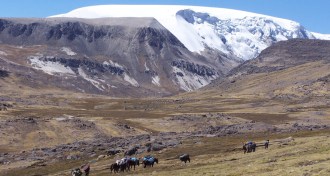 Environment
EnvironmentHumans’ environmental rap sheet gets longer
Ice cores reveal human-caused air pollution 240 years before the Industrial Revolution.
By Beth Mole -
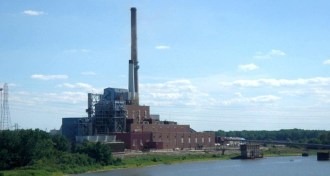 Environment
EnvironmentFunding canceled for clean coal plant
The Department of Energy has scrapped funding for FutureGen, a project to use new technology to sequester carbon dioxide emissions from a coal power plant.
By Beth Mole -
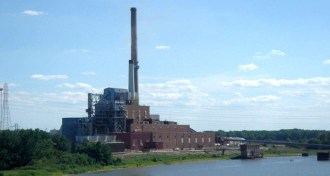 Environment
EnvironmentFunding canceled for clean coal plant
The Department of Energy has scrapped funding for FutureGen, a project to use new technology to sequester carbon dioxide emissions from a coal power plant.
By Beth Mole -
 Health & Medicine
Health & MedicineE-cigarettes lower immunity to flu and other germs
Electronic cigarettes produce substantial amounts of lung inflammation, a new mouse study finds. They may also reduce the ability to fight off infections from strep and flu germs.
By Janet Raloff -
 Environment
EnvironmentTuna mercury rising
From 1998 to 2008, mercury levels in Hawaiian Yellowfin tuna have increased by 3.8 percent per year, researchers suggest.
By Beth Mole -
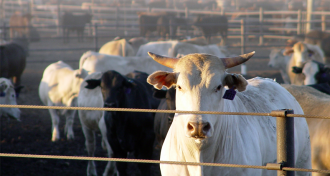 Agriculture
AgricultureSuperbugs take flight from cattle farms
Winds can carry antibiotics and drug-resistant bacteria from cattle farms to downwind communities.
By Beth Mole -
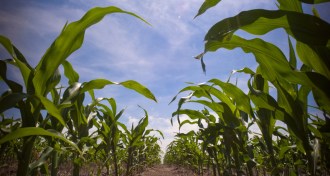 Environment
EnvironmentAtrazine’s path to cancer possibly clarified
Scientists have identified a cellular button that the controversial herbicide atrazine presses to promote tumor development.
By Beth Mole -
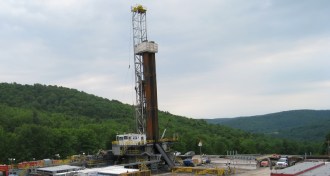 Environment
EnvironmentMore toxic chemicals found in oil and gas wastewater
High levels of ammonium and iodide found in wastewater from oil and gas exploration can harm aquatic life and form dangerous byproducts in tap water.
By Beth Mole